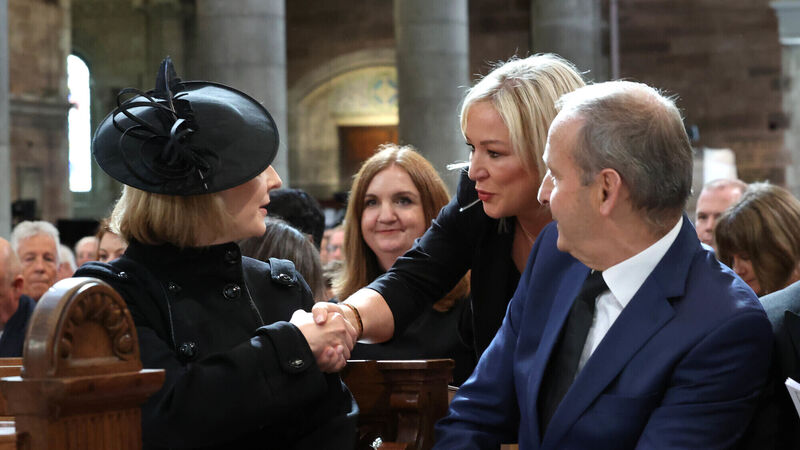Irish Examiner view: The price we pay for being always on

Liz Truss (left) greets Sinn Féin Vice president Michelle O'Neill with Taoiseach Micheál Martin (right) at a Service of Reflection for Queen Elizabeth II at St Anne's Cathedral in Belfast. Picture: Liam McBurney/PA Wire
















